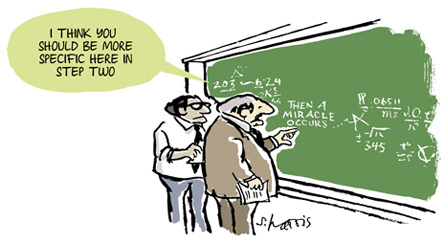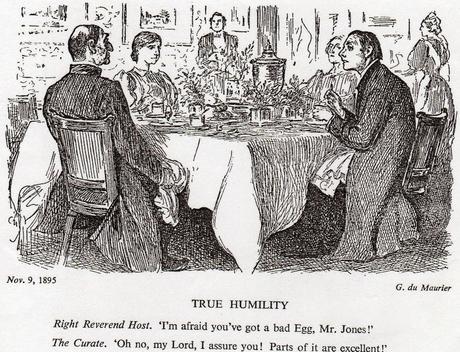Suppose momentum weren’t conserved. Or angular momentum. You can make up science fiction scenarios, but if you think them out thoroughly you find that your imaginary universe is extremely strange.
It turns out that if it doesn’t matter where you measure from—if one part of space is just like any other part and you can move anywhere and have it look the same—you get conservation of momentum. If one direction is like any other and you can turn in any direction you like and it still looks the same, you get conservation of angular momentum. Those symmetries have important consequences. Other less obvious symmetries result in forces: “… physicists gradually realized that all forces (fundamental interactions) arise from the constraints imposed by local gauge symmetries, in which case the transformations vary from point to point in space and time.” Invisible symmetries.
Or to put it another way, if you had different symmetries, you’d have a different universe with different forces.
So far so good.
Quantum MechanicsIn quantum mechanics you find the consequences of not being able to measure two quantities at the same time: e.g. momentum and position in the x-direction (whichever that happens to be for you).
One way of picturing this is to think of an arrow that points up, down, or sideways when you want to measure its direction, but is spinning either left or right. And you’re in the dark, so the only way to measure it is to grab it. Now that you’ve grabbed at it, you know which direction it pointed, but you’ve no clue which direction you knocked it spinning. not an exact analogy, but easier to visualize
So if you measure one quantity you know that the object is in state A instead of B or C, but you are unsure if its other quantity is in state X, Y, or Z.
As a result when you find that you must describe a system as being in potentially many different states at once, until you actually measure which. (Yep, sounds weird, but it works. More intuitive approaches don’t.) You have to “add up” the probabilities that it is in each of the different states to get the full description. I oversimplify.
So far: symmetries are closely related to forces, and things are described by waves with various properties that you can’t simultaneously measure perfectly. Even mass: it turns out that you can’t know both the type and mass of a neutrino simultaneously.
And so…Physicists get used to calculating with ensembles and also with trying to figure out the rules of the game from the structure of symmetries. Classical physics has long used the “least action” principle—an object follows a path that minimized the ”action”. Why not calculate the behavior of a particle by adding up every single path it could have taken, each path weighted by a handy quantity related to the action? Making it crazy complicated turned out to be very useful.
Physicists don’t like arbitrariness in a theory. They generally feel that if there is a constant in the equation, there should be an explanation for it. If the ratio of several constants were a little different, the Sun wouldn’t shine very usefully. Why is the ratio what it is? There’s got to be some reason, maybe based on the structure of the universe—some structure that has to be there.
In other words, this isn’t “the best of all possible worlds”, they expect it to be “the only possible world.”
But suppose it isn’t. Suppose there were many different “universes” in the grand ensemble UNIVERSE. (No, you couldn’t manage to get from one to another. You can’t even get to Proxima Centauri.)
Maybe there are an infinite number of universes with slightly different physical constants, or maybe the initial “inflation” of our universe was so fast that parts effectively separated from each other and became effectively disconnected universes.
Oh, I didn’t mention cosmic inflation?

A simple “Big Bang” with the universe expanding outwards, the expansion slowing down due to gravity, seems to predict certain things about the distribution of matter that don’t match observation. There should be much bigger correlations between distant parts of the universe that weren’t so distant when the universe was just born. If you posit an extremely rapid inflation of the universe for about 10^-32 seconds after the Big Bang (for unknown reasons), the observations match the predictions—different parts of the universe are appropriately uncorrelated from each other. In other words, it is crazy but it seems to work.
Hold itA multiverse is a bridge too far. Even if using it in models gave some sort of calculational simplification, you’ve no way of interacting with these alternate universes, no way to know which, if any exist, and no way to test anything. Any trace of them has to drop out of your final answer—they’d be simply an unreal convenience.
You can use complex numbers instead of real ones sometimes, as an "unreal convenience"; it just turns things a little sideways for a while but in the end the predicted measurement is real. There’s a connection all the way.
To say that a particle can move through two different slits at once because it is also a wave is, by contrast to a multiverse, easy to test. You can point to the different locations, do the experiments, and infer the proposition. All you have to understand is that a particle isn’t quite as simple a beast as your old mental model of it.
So how come the Universe is like this?In a multiverse, there are an enormous number of possibilities for us to be in. How come we’re in this one?
One vexed answer: The Anthropic Principle. We’re in this sub universe because we wouldn’t be here if the fundamental constants were different, so we’re not in the other ones, where maybe the W mass is different and so nuclear decay is different and stars aren’t as bright and light is different. And you don't need to worry about purpose, which you do if there's a Creator.
Put another way: Let there be US! And there was light.
If you’re going to be that arbitrary about how to get the fine-tuning needed for our universe, you might as well go whole hog. However, the mere suggestion of a Creator makes some famous physicists shudder. not all And a lot of them shudder at the multiverse too, and wonder why it and the anthropic principle get so much press.
It isn’t that hard to see why they get press. The ideas seem wild and exciting and just the thing for click-bait. There’s no need for the hard questions about how and why things work the way they do; just punt and say they’re the way they are because that’s the way they are here, and things are different next door. Just the ticket for journalism majors and the average reader.


